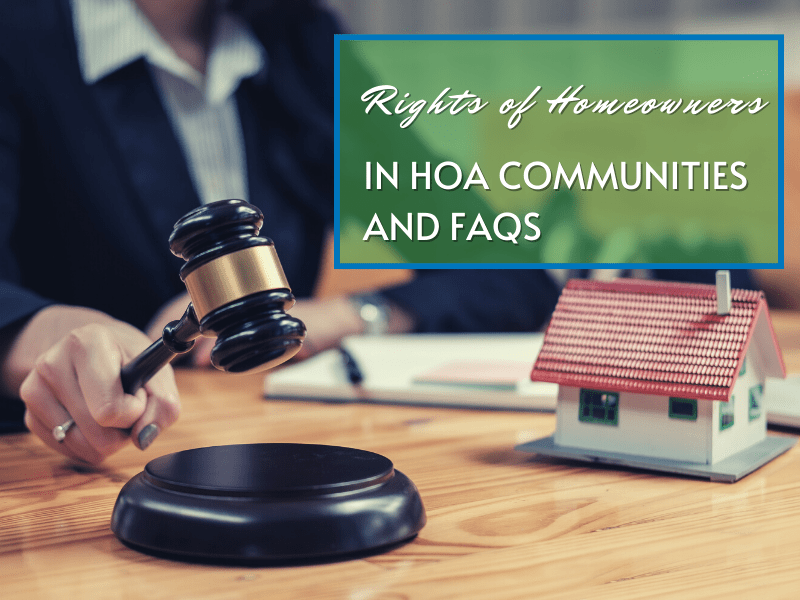
Conflict is never fun, and when a homeowner is doing battle with an HOA, things can get pretty messy pretty quickly.
What can a homeowner actually do if they’re facing an action against the HOA for a violation or a problem? There are some legal rights that must be protected, and homeowners will need to stay open to resolution with their association.
As professionals who specialize in Winston-Salem association management, we have some FAQs for you and some advice on this topic.
Where Do Homeowners and HOA Rights Originate?
The North Carolina Planned Community Act governs homeowners associations in North Carolina, including how they are managed and operated. If you’re a homeowner in a community that was formed on or after January 1, 1999, your HOA is subject to this law unless your community has 20 or fewer homes.
The North Carolina Planned Community Act breaks down into three articles:
- Article 1 – General Provisions.
- Article 2 – Creation, Alteration, and Termination of Planned Communities.
- Article 3 – Management of Planned Community.
If you’re in a condo association, you and your association will be required to follow the North Carolina Condominium Act, which applies to condo associations created after October 1, 1986.
How Aggressively can an HOA Collect from a Homeowner?
Whether it’s an overdue fee, a penalty, or an assessment, there are limits to what an HOA can do to collect funds from a homeowner. The North Carolina Debt Collection Act (NCDCA) governs debt collection practices in North Carolina and is designed to protect consumers from unfair, deceptive, or abusive practices brought on by debt collectors. According to this law, homeowners would qualify as consumers and those HOA dues or fees would be considered debts.
Legal Rights of Homeowners in Winston-Salem HOAs
If you’re a homeowner who is not sure about what you can and cannot do while resolving a dispute with your HOA, here are some of the things you need to know:
-
You Can Inspect HOA Documents and Records
Associations are required to keep detailed financial records and make them reasonably available to their members for inspection. You are entitled to see documentation associated with your HOA’s assets, debts, cash receipts, and expenses. You should also receive access to the association’s balance sheet and income statements within 75 days of the year’s end.
-
Dispute Resolution and Mediation are Encouraged
According to North Carolina HOA laws, associations must inform members of their right to a mediation process when there’s a legal dispute or a conflict. Before one party sues another, the law encourages mediation first. However, this does not apply to disputes concerning delinquencies.
-
You Can Fly Your Flag
According to the Planned Community Act, associations may not prohibit the U.S flag or the North Carolina flag from being displayed on properties unless this is expressly prohibited in the declarations of the association. Your HOA can, however, restrict the size. You’re allowed to fly a flag that measures no more than 4 x 6 feet. It’s the same for political signs.
 These are some of the rights homeowners have when they’re working with their HOA. If you have questions about property management services in Winston-Salem or Winston-Salem association management, please contact us at Capstone Realty Consultants.
These are some of the rights homeowners have when they’re working with their HOA. If you have questions about property management services in Winston-Salem or Winston-Salem association management, please contact us at Capstone Realty Consultants.
